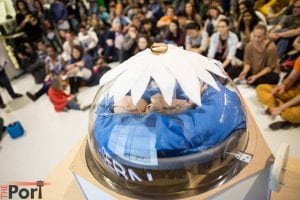
Agriculture
December 19, 2023
GlobalNeoNat Infant Incubator
Read SolutionImplemented by
GlobalNeoNat
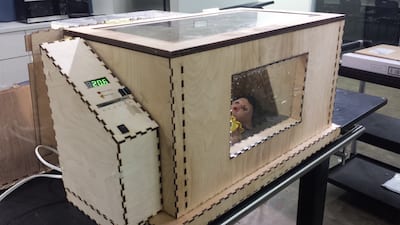
Updated on September 27, 2024
·Created on September 4, 2019
Incubaby is a low-cost incubator for hypothermic infants that can be flat-packed and is made using simple materials that reduce the cost and shipping.
Incubaby is a low-cost solution to the condition of hypothermia in infants developed by a team of engineering students at Rice University. Hypothermia, a dangerous condition in which the baby’s temperature falls below 36 degrees Celsius (96.8 degrees Fahrenheit), is quite common in infants. The innovation works by increasing the core temperature of the body of the infants using electronics, shielded by double-wall plywood panels. The prototype can be manufactured and assembled locally in developing countries. The prototype consists of two boxes: one to hold the baby and one to hold the electronics. The students plan to ship the final prototype of the IncuBaby incubator to Queen Elizabeth Central Hospital in Malawi.
Target Countries
Malawi
Target SDGs
SDG 3: Good Health and Well-Being
Market Suggested Retail Price
$350.00
Target Users (Target Impact Group)
Community, Small and Medium-sized Enterprises
Distributors / Implementing Organizations
Rice Engineering Alumni and BTB - HHMI
Competitive Landscape
Direct competitors include Otter Newborn Warmer.
Countries
Malawi
Manufacturing/Building Method
The prototype was designed and built by a team of engineering students at Rice University. The product is assembled with laser-cut plywood, acrylic windows in the top and front, and polystyrene foam for insulation.
The product can be manufactured locally or remotely and shipped.
Intellectural Property Type
Select Type
User Provision Model
The product is in the development phase and the design team is piloting the project at Queen Elizabeth Central Hospital in Malawi.
Distributions to Date Status
None
Accuracy of temperature control (deg C)
Unknown
Accuracy of temperature display (deg C)
Unknown
Alarm level
Unknown
Alarm type
Unknown
Use Duration (hours)
Unknown
Design Specifications
The low-cost incubator designed and built at Rice University’s Oshman Engineering Design Kitchen uses heating pads and simple materials to keep an infant’s body temperature stable while providing temperature feedback. The material used for the fabrication of the prototype is birch plywood and acrylic with polyurethane foam to provide insulation in the walls of the system. All materials were specified as they are easily available in workshops of developing countries.
Regulated by a micro-controller, the heating pads receive inputs from a thermistor which is mounted onto the body of the infant, keeping the infant's temperature at homeostasis. An alarm system alerts the care provider of overheating or power loss.
Technical Support
Provided by the manufacturer
Replacement Components
Unknown
Lifecycle
Unknown
Manufacturer Specified Performance Parameters
The incubator can maintain an infant's temperature within +/- 1 degree Celsius of the desired body temperature and has less than 2.5 % error.
Vetted Performance Status
The product is still in the prototype phase.
Safety
If the feedback system that reads the infant's temperature fails, the infant health might be compromised.
Complementary Technical Systems
A reliable power source is required to keep the incubator functioning. The incubator can be run on battery as well in the areas where continuous power supply is not available.
Academic Research and References
Tlebere, P., Jackson, D., Loveday, M., Matizirofa, L., Mbombo, N., Doherty, T., … & Chopra, M. (2007). Community-based situation analysis of maternal and neonatal care in South Africa to explore factors that impact utilization of maternal health services. The Journal of Midwifery & Women’s Health, 52(4), 342-350.
Compliance with regulations
Unknown
Other Information
None

Agriculture
December 19, 2023
Implemented by
GlobalNeoNat
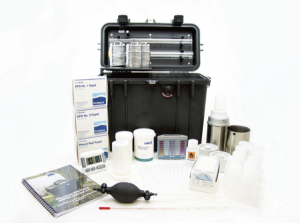
Agriculture
January 18, 2024
Implemented by
Barry Lloyd, University of Surrey
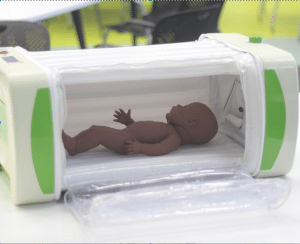
Agriculture
September 27, 2024
Implemented by
mOm Incubator
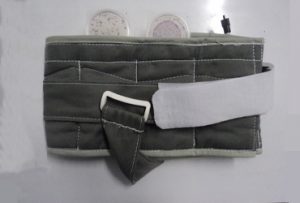
Agriculture
January 27, 2024
Implemented by
Environment & Public Health Organization (ENPHO)

Agriculture
January 27, 2024
Implemented by
Water and Environmental Engineering, University of Bristol
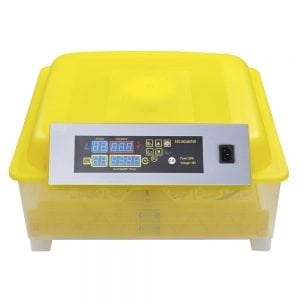
Agriculture
August 22, 2024
Implemented by
Engoho Kuku Farmer
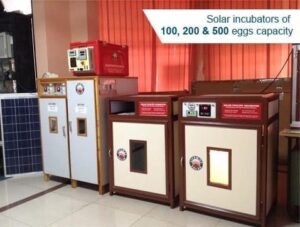
Agriculture
January 8, 2024
Implemented by
Lifeway Solar
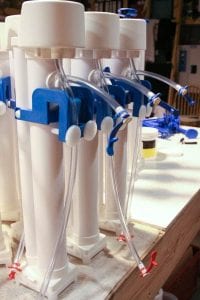
Agriculture
December 27, 2023
Implemented by
Aquabox, UK
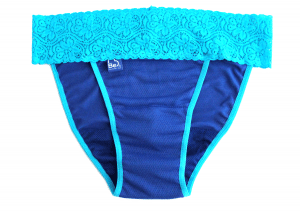
Agriculture
December 18, 2023
Implemented by
Be Girl
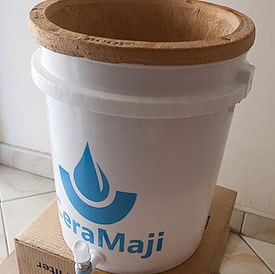
Agriculture
January 11, 2024
Implemented by
Kenya Ceramic Project (KCP)
Have thoughts on how we can improve?
Give Us Feedback